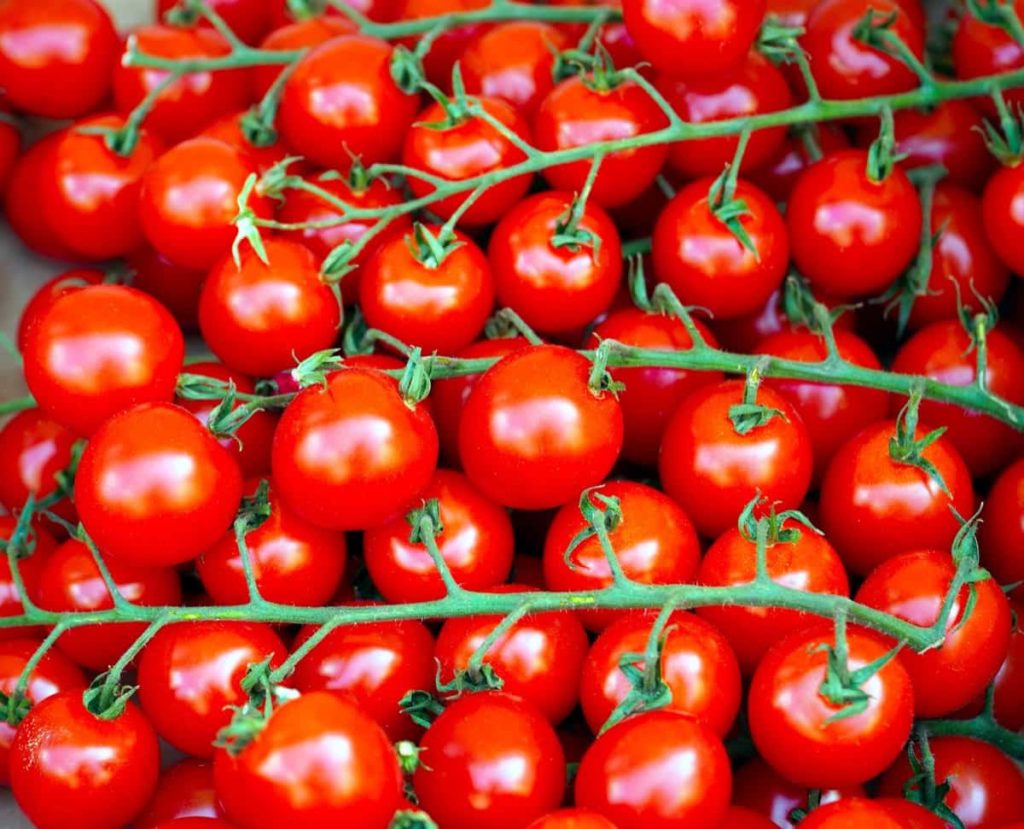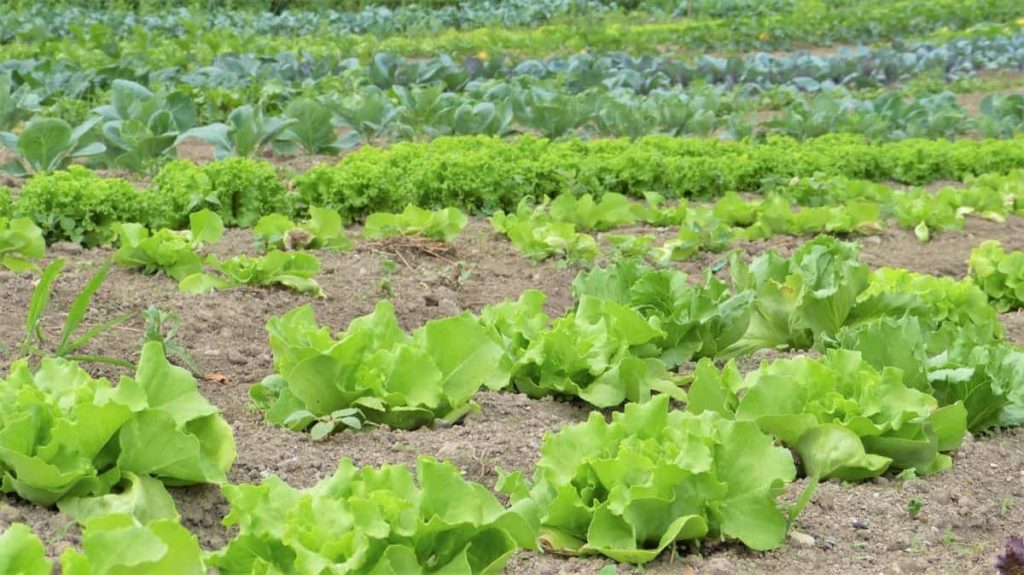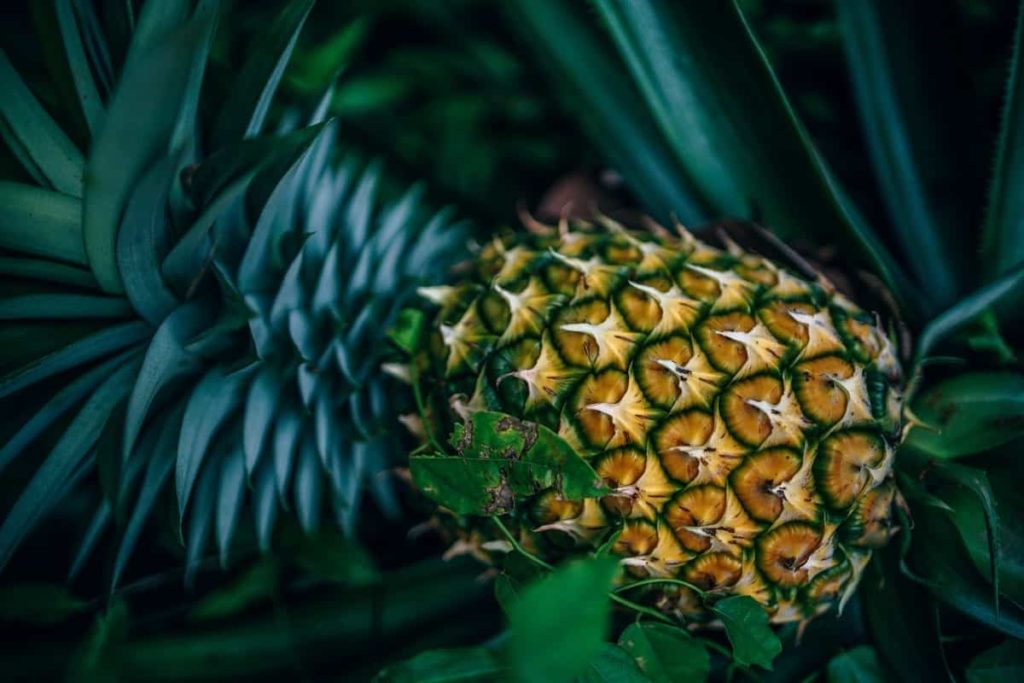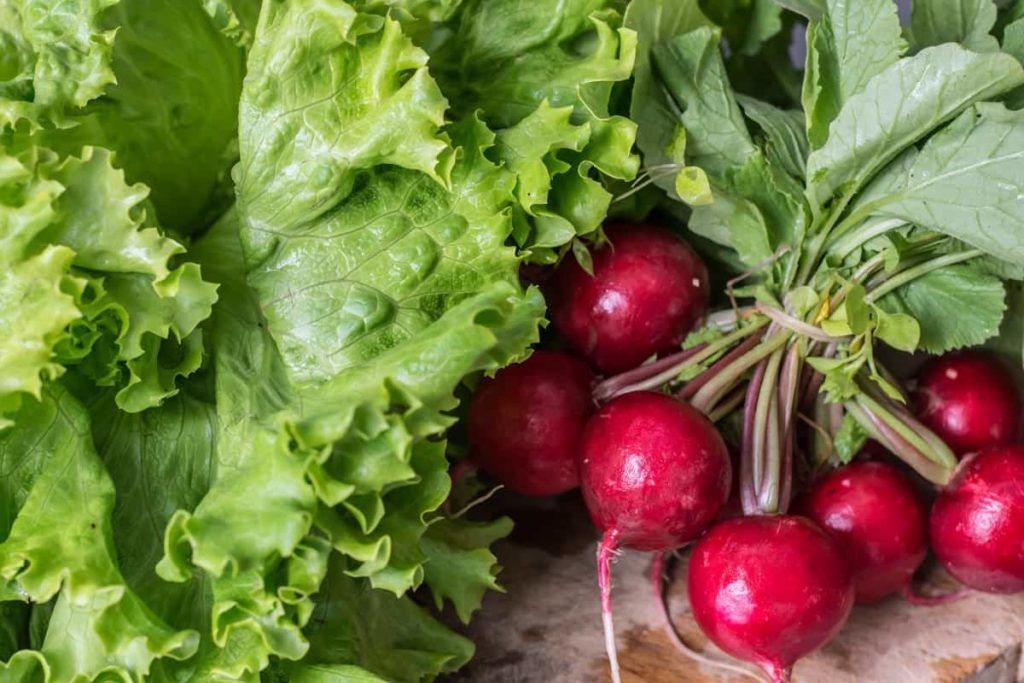Introduction on how to start organic farming in Jharkhand: Organic farming is a system of production that discourages the maximum use of synthetic fertilizers and growth regulators and takes basic measures to maintain the productivity of the land such as crop rotation, crop residues, animal and green manures, organic waste, etc., to maintain soil productivity (physical aspects of soil), supply of nutrients to plants, weeds and pest control. The main purpose is to cultivate the land and increase the crops in such a way that the use of organic waste (crop, animal and field waste, aquatic waste) and others will keep the land alive and well.
This mainly involves the use of biological or natural resources, the avoidance of synthetic substances to maintain soil fertility, which can reduce pollution and waste. Organic farming aims to protect the environment and natural resources, restore ecological balance, promote sustainable agriculture, improve soil fertility, protect plants and animals, increase genetic diversity, provide healthy food to people and eliminate chemical contamination and toxic residues.
A guide on how to start organic farming in Jharkhand, organic farming authority of Jharkhand (OFAJ), opportunities for investors in Jharkhand

Benefits of organic farming
- Health benefit of users
- Developing a global vision of professional agriculture
- Reducing the cost of production
- Improving cost of production
- Improving the socio-economic status of people
- Increasing state per capita income
- Development of standard food processing industry
- Income from the export front
Importance of organic farming in Jharkhand
Organic farming is being adopted by farmers across the country for a variety of reasons, due to which its development is a three-dimensional picture. Categorically, there are three types of farmers. The first includes those organic farmers, those who come from the no / low input zones, where organic farming is a tradition due to the absence of resources required for conventional high input in intensive agriculture. In this category, the majority of farmers are uncertified. The second category includes farmers who have recently adopted organic farming due to the negative effects of conventional farming such as poor soil health, food contamination by various chemicals, and poor yields. This includes both certified and uncertified farmers.
In the third category, the majority of farmers are certified. They are farmers and firms that are systematically producing organic crops for commercial purposes. Their purpose is simply to make a profit by producing organically. About two-thirds of India’s population of one million farmers are engaged in organic farming. In 2015, India reported an increase of 30% and 40% in organic product exports and domestic market, respectively. With over 70,000 MT of organic cotton produced a year ago, India has become the largest producer of organic cotton in the world, accounting for more than 50%.
Organic farming is generally more sustainable for agriculture as compared to traditional chemical farming methods and is considered an environmentally friendly approach. Organic methods generally do not rely on chemical fertilizers and pesticides that remove soil from nutrients and are less expensive. There have been some initiatives to promote organic agriculture in Jharkhand at the national and state level. Despite all these measures, there are still practical constraints to organic farming, discouraging farmers from adopting it on a large scale. These include low productivity, lack of marketing facilities, and lack of organic inputs. Prepare to increase income by reducing the expenses of Jharkhand farmers through organic farming.
In organic farming, use some products by using traditional resources like Jiwamrit, Bijamrit, Brahmastra, Ghanamrit, Nimashtra, and Agniastra, etc. About 0.08% of Jharkhand’s arable land is developed to be cleared of chemical fertilizers and pesticides. Out of the net cultivated area of about 31 lakh hectares land, only 26,310 hectares of area is promoted under organic farming.
India has emerged as the single largest country with the most cultivable land under organic management with extraordinary growth in the area under organic management and increasing demand for wild crop products. Export performance of organic food products from India is highest with cash crops like Tea, Coffee, and Spices, etc., and cereal crops like Paddy, Wheat.
Organic Farming Authority of Jharkhand (OFAJ)
The Organic Farming Authority of Jharkhand has been constituted by the state government as a society in the year 2012-13. The main crop of paddy is grown by almost all the farmers, especially during the Kharif season. Farmers use it to get low yields with very low profits. Farmer’s indiscriminate use of pesticides and fungicides in these crops make them unusable for food and cause many diseases. Thus, to test the use of synthetic chemicals and inputs, organic farming is essential. With this in mind, the state government formed a society called the “Organic Farming Authority of Jharkhand”. The main objectives are the availability of organic food especially vegetables, spices, and medicinal herbs, popularization of organic produce, premium prices for farmers, and export of organic produce.
In case if you miss this: How to Buy Agriculture Land in India & Who Can?

The Government of Jharkhand formed a society in 2012 called the Organic Farming Authority of Jharkhand (OFAJ). It is to promote organic farming, 12 years after gaining independence as a separate state, which shows little information available about organic farming in the state.
In Jharkhand, more than 70% of the population is dependent on agriculture and their source of livelihood. Paddy is the main crop grown here in the Kharif season. Many horticultural crops, such as French beans, Cole crops, and Tomato, are grown year-round. OFAJ was created to eliminate the indiscriminate use of chemical fertilizers. Under this rule, the Tribal Sub Plan (TSB) covers 13 districts namely Ranchi, Khunti, Lohardaga, Gumla, West Singhbhum, East Singhbhum, Saraikela- Kharshawan, Dumka, Simdega, Pakur, and Sahebganj have been included.
Purpose of OFAJ
- To provide organic food, especially vegetables, spices, and medicinal herbs.
- Farmer’s land verification
- Maintenance of internal control system
- To popularize organic produce
- Premium prices to the farmer
- Enforcement of socio-economic condition of the farmers
- Export of organic produce
- Enforcement of environment
Jharkhand is a mineral-rich state, more than 70% of the population is dependent on agriculture. The main crop of paddy is grown by almost all the farmers, especially during the Kharif season. Farmers use it to get low yields with very low profits. Horticultural crops like fruits, vegetables, spices, etc., are also grown by the farmers, and some vegetables like Coal Crops, French Beans, Tomatoes are grown throughout the year.
Objective of OFAJ
- The main objective is to facilitate organic farming practices through technical support and government-sponsored schemes
- Organic commodities certification for its organic authenticity & value addition in the global market
- To make available the organic products
- Certification of the farmer’s land
- Maintenance of internal control system
- To popularize organic produce
- Premium prices to the farmer
- Enforcement of socio-economic condition of the farmers
- Export of organic produce
- Enforcement of environment
Major missions in OFAJ
Farmer’s indiscriminate use of insecticides and fungicides in these crops make them unusable for food and cause many diseases. Thus, to check the use of synthetic chemicals and inputs, organic farming is essential. With this in mind, the state government formed a society “Organic Farming Authority of Jharkhand” in 2012-13. Under “OFAJ” three separate missions have been set up for different horticultural crops such as;
1. State Organic Mission – The total area under cultivation is 15,700 hectares and Rs. 10 crores has been allocated for all the 13 districts. The identified crops are mainly vegetables like Peas, Okra, French Beans, and Broccoli.
2. State Spice Mission – The total area under cultivation is 7610 hectares and Rs. 5 crores have been allocated for all 13 districts. The identified crops are mainly vegetables such as Turmeric, Coriander, Garlic, And Pepper.
3. State Medical Mission – It has a total cultivable area of 3000 hectares and Rs. 2 crores have been allocated for all 13 districts. The identified crops are mainly vegetables like Kalmegh, Aloe Vera, and Shatawar.
In the current scenario, various states spend hundreds of crores of rupees to convert their land into organic, the Government of Jharkhand has promoted organic farming in 26,310 hectares of land. The state organic mission has allocated an average of Rs 6,500 per hectare for the promotion of organic farming, which is not much. Taking too much from the environment and giving too little to sustain the environment.
In case if you miss this: How To Buy Agricultural Land In Kerala

Potential of organic farming in Jharkhand
To promote organic farming in the state and to make farmers aware of it, a state-level training workshop on organic farming was organized at a local auditorium in Kanke, jointly organized by Jharkhand CSO Forum. Therefore, the farmers can perform better in this area, they will get better yield and more profit. The possibilities of organic farming in Jharkhand were also discussed. It is worth mentioning that the state government aims to bring all the farmers towards organic farming.
Opportunities for investors in Jharkhand
- The state has 10 lakh hectares. Upland where minimum use of chemical inputs is common. This upland is a paradise for future organic production.
- The state has abundant forests which include various organic products such as medicinal plants, fruit plants, edible mushrooms, etc. Specific natural products were identified and promoted for streamlined extraction.
- Traditional methods of crop production are common with minimal use of chemical inputs. Farmers are easily attracted to organic production.
- The state has an immovable ecosystem, so environmentally friendly products can be promoted. The state receives more rainfall annually (1000-1300 mm per year). Agricultural climatic conditions are favorable for commercial vegetable production. These natural resources are being utilized by setting up watersheds and organic villages.
- The high animal population in the state indicates easy availability of organic manure raw material production from animal waste.
- Agricultural climatic conditions are favorable for commercial vegetable production. The state produces about 11 lakh metric tonnes of surplus vegetables.
Organic farming schemes in Jharkhand
The state government launched organic farming and its certification facility in Jharkhand. Approved promotion of Rs.100 crore. Under this scheme, farmers will be given Rs.30,000 per acre for chemical-free farming.
PKVY – PKVY’s cluster-based program encourages farmers to promote organic farming. Under this program;
- Some farmers will be encouraged to start organic farming practices. Under the scheme, about 50 or more farmers will form a cluster of 50 acres of land to start organic farming practices.
- Thus, 10,000 clusters covering an area of 5.0 lakh acres will be formed under organic farming all over India. Farmers will not be liable for the cost of organic certification.
- Every farmer will be provided Rs. 20,000 per acre in 3 years for harvesting and bringing products to market.
NPOP – NPOP Certification is a system of process certification in which an autonomous body reviews the entire production, processing, handling, storage, and transportation process to ensure compliance with organic standards. This process usually involves a comprehensive overview of farming practices, including land management, input use, machinery use, pest management, and rearing methods that are compatible with their natural behavior after harvest.
Processing and handling of animal welfare, supplementation of artificial foods and avoidance of hormones, and use of allopathic medicines and antibiotics in limited animal products and through document review and on-site physical examination. All such certified products carry a certification mark on their packaging to help consumers and other buyers make informed purchasing decisions.
In case if you miss this: Organic Farming In Haryana, How To Start

Objectives of NPOP
- To provide the certification for organic agriculture programs and products (including wild crops, aquaculture, livestock products) under the approved standards.
- Recognition of certification programs of certification bodies under the NPOP scheme.
- Facilitate the certification of organic products under the treaty of equality between the two countries or under the requirements of the importing country under the organic standards of the importing countries.
- Encouraging organic farming and organic processing development.
Get organic agriculture product certificate in Jharkhand – Procedure
- For getting an organic agriculture product certificate, a person (farmer/farmer group/processor/trader) who is looking for a certificate of organic farming for his agricultural produce should make sure that his form is National Program for Organic Production (NPOP). According to the standards set by organic crop production under NPOP.
- After that, they apply along with complete verification of the field and the fee in the required format specified by the National Program for Organic Production (NPOP).
- And, approach the service agency for the application form and other details required for certification.
Validity – Usually, the organic certificate is valid for 1 year from the date on the certificate. You must apply for annual renewal to maintain the status of your certification after entering the certification system.
Problems and constraints for organic farming in Jharkhand
One of the major constraints to the development of organic farming is the failure of government policy-making levels to promote organic farming. The use of pesticides has accumulated a lot of chemicals in our environment, soil, water, air, animals, and even our bodies. Fertilizers have a short-term effect on productivity but have a long-term negative impact on the environment where they contaminate groundwater and aquifers after years of leaching and leaching.
Secondly, Birsa Agriculture University is the only agricultural university that needs to take some action against the scientists who promote chemical farming and seeds owned by MNCs. The availability of quality seeds in the seed industry can also be increased through Public-Private Partnership (PPP), which can take advantage of the existing strengths in these two areas. Equipped for both basic strategic and applied research, but the private sector lags behind the relatively extensive modern infrastructure facilities and large manpower.
In case if you miss this: Meat Sheep Breeds, List, and Advantages

However, the private sector specializes in high-tech research, such as the development of genetically modified varieties and seed production. The climatic conditions of the state of Jharkhand are suited for the production of quality seeds during winter crops and maybe an ideal state for the private sector to take advantage of opportunities. These are the major challenges farmers face in developing organic farming.
Lack of awareness – Lack of awareness can be seen in both producers as well as consumers. Consumers don’t know much about organic farming because they have no idea what chemicals and pesticides are doing to their health. Secondly, organic products cost more than other products, so consumers, especially middle-class and lower-income families, choose to produce from chemical farming. The same is true of farmers as they are unfamiliar with organic farming methods and techniques, fertilizer, compost or bio-fertilizer, the moisture level required to be maintained, etc. Hereby no benefit is available for the soil or the crops.
Marketing barriers to product sales – Very few farmers who are pressured to grow organically do not get the right price for their finished product. They do not get the price they deserve, more than the traditionally cultivated products. One reason for this is that people are unaware of some of the side effects that come from using traditional farming methods and thus do not buy organic products in the name of extra cost. And now the focus is on quantity and external quality rather than internal or nutritional quality.
Inadequate Animal Husbandry – Inadequate Animal Husbandry in Jharkhand is insufficient, which can be considered as a major problem, due to which people are unable to produce the organic manure required to maintain the organic farm. Another problem is that farmers do not know how to manage fertilizers, livestock waste, etc., which are important components. Therefore, they need to rely on the market for the supply of organic matter and this increases the cost of the product.
Desi vs. HYV Seeds – Desi seeds are those that are kept or stored by farmers for next year’s sowing. It is usually kept in a dark shaded house free from insects and bugs. The maximum temperature is maintained to keep the seeds alive. Farmers grow HYV seeds under the umbrella of the Green Revolution, but they need huge investments for HYV. And with the recent inclination of farmers towards HYV seeds, as well as soil degradation, the taste, and nutrition of the product is not available.
A farmer can use HYV seeds for organic farming but according to the guidelines of the National Center for Organic Farming (NCOF) as per FAO. According to Jharkhand farmers, although they sow HYV seeds, they are not morally satisfied, as the product does not have the nutritional value and flavor that indigenous seeds have. But they choose HYV seeds only for higher yields. Similarly, 80% of farmers in East India opted for hybrids for paddy cultivation and when asked the reason from many vendors in Ormanjhi Block, Ranchi, the main reasons increased in production, small agriculture land holding, and as they can afford it.
High Input Costs – In Jharkhand nowadays, farmers are less dependent on livestock for manure. This is partly because of the displacement of families and the rate of nucleation, less labor available in the home, and therefore the householders are reluctant or unable to keep cattle that need grazing and other care. In addition, hybrid seeds have been promoted with chemicals that are sold by traders and retailers. Therefore, the farmer needs to buy inputs required for organic farming like vermicompost, manure, etc. which are more expensive than the input required in the traditional method of farming. This is a big reason why farmers are not ready to convert their land into organic.
Solutions for organic farming problems in Jharkhand
Solutions to the problem described below are beneficial to farmers as well as the environment. This will provide ample opportunity for farmers to develop commercially and organically. It will include a system of contract organic farming and participatory guarantee and animal husbandry should be promoted.
In case if you miss this: Agriculture In South Korea, How To Start

Public-Private Partnership (PPP) – Public-Private Partnership can be a real game-changer in the organic agriculture sector to promote organic farming. Government, private companies can transform organic agriculture on many levels with education as well as research and development. The project/model is funded by the government, while the private sector has the technical expertise and the rest will be done by the farmer. The task of research and development will be to create awareness among the people about the benefits of organic farming and the harmful effects of their products and chemical farming. The government can also play a key role in creating an environment for private investment through increasing public spending, preferential sector loans, foreign direct investment (FDI), tax relaxation, and duty exemptions.
Contract Organic Farming (COF) – COF is a contract between a buyer (firm) and a farmer, where he produces agricultural products and supplies them directly to the buyer. The two agree on certain terms and conditions for the sale and purchase of the product. In this system, the companies meet the farmers from time to time and provide them with all the modern agricultural and technical assistance for the production of crops. Similarly, in Contract Organic Farming, the farmer will be provided with all the organic facilities required by the farmer for organic production of bio-fertilizers, vermicompost, fertilizers, etc. To sustain farmers economically and environmentally.
- The price is fixed.
- Quality and quantity.
iii. Harvest period is based on the demand for company crops. It will help the farmers of Jharkhand to cultivate organically and with the help of multinational companies, it will be easier for the farmers to convert their fields through contract. This will help them economically, socially, and environmentally.
Participatory Guarantee System (PGS) – PGS is defined as “quality assurance measures that are locally relevant, emphasizing the participation of stakeholders including producers and consumers and beyond the framework of third-party certification.” Some of the basic elements required for PGS are participatory approach and collective responsibility, transparency, trust, non-hierarchical, high quality in production, environmentally friendly, and respecting the autonomy and cultural differences of local communities.
In PGS, group members peer to another member of the farm to assess the organic quality of the field and the member agrees to face the consequences of any infringement. For example, if a farmer is caught using prohibited inputs, he or she will be fined or expelled from the group. The Jharkhand government may plan to set up a PGS in full or in collaboration with a non-governmental organization, where a group of small farmers will be formed. The PGS will act as an umbrella under which all farmers will be verified based on the assessment given by the group member. This will encourage farmers to practice organic farming and promote collective growth.
- Types of Pesticides Used in Agriculture: A Beginner’s Guide
- Economical Aquaculture: A Guide to Low-Budget Fish Farming
- 15 Common Planting Errors That Can Doom Your Fruit Trees
- How to Make Houseplants Bushy: Effective Tips and Ideas
- Innovative Strategies for Boosting Coconut Pollination and Yield
- Pollination Strategies for Maximum Pumpkin Yield
- The Complete Guide to Chicken Fattening: Strategies for Maximum Growth
- Natural Solutions for Tulip Problems: 100% Effective Remedies for Leaf and Bulb-Related Issues
- Revolutionizing Citrus Preservation: Towards a Healthier, Greener Future
- Natural Solutions for Peony Leaf and Flower Problems: 100% Effective Remedies
- Maximizing Profits with Avocado Contract Farming in India: A Comprehensive Guide
- Natural Solutions for Hydrangea Problems: 100% Effective Remedies for Leaf and Flowers
- The Ultimate Guide to Choosing the Perfect Foliage Friend: Bringing Life Indoors
- From Sunlight to Sustainability: 15 Ways to Use Solar Technology in Agriculture
- The Ultimate Guide to Dong Tao Chicken: Exploring from History to Raising
- The Eco-Friendly Makeover: How to Convert Your Unused Swimming Pool into a Fish Pond
- Mastering the Art of Delaware Chicken Farming: Essentials for Healthy Backyard Flocks
- 20 Best Homemade Fertilizers for Money Plant: DIY Recipes and Application Methods
- How to Craft a Comprehensive Free-Range Chicken Farming Business Plan
- Brighten Your Flock: Raising Easter Egger Chickens for Beauty and Bounty
- How to Optimize Your Poultry Egg Farm Business Plan with These Strategies
- Subsidy for Spirulina Cultivation: How Indian Government Schemes Encouraging Spirulina Farmers
- Ultimate Guide to Raising Dominique Chickens: Breeding, Feeding, Egg-Production, and Care
- Mastering the Art of Raising Jersey Giant Chickens: Care, Feeding, and More
- Ultimate Guide to Raising Legbar Chickens: Breeding, Farming Practices, Diet, Egg-Production
- How to Raise Welsummer Chickens: A Comprehensive Guide for Beginners
- How to Protect Indoor Plants in Winter: A Comprehensive Guide
- Ultimate Guide to Grow Bag Gardening: Tips, Tricks, and Planting Ideas for Urban Gardeners
- Guide to Lotus Cultivation: How to Propagate, Plant, Grow, Care, Cost, and Profit
- Agriculture Drone Subsidy Scheme: Government Kisan Subsidy, License, and How to Apply Online
- Ultimate Guide to Raising Araucana Chickens: Breed Profile, Farming Economics, Diet, and Care
- Bringing Hydroponics to Classroom: Importance, Benefits of Learning for School Students
- Ultimate Guide to Raising Polish Chickens: Breed Profile, Farming Economics, Diet, and Care
- Ultimate Guide to Raising Australorp Chickens: Profile, Farming Economics, Egg Production, Diet, and Care
- Silkie Chicken Farming: Raising Practices, Varieties, Egg Production, Diet, and Care
- Sussex Chicken Farming: Raising Practices, Varieties, Egg Production, Diet and Care
Yes, it’s good to get awareness about Organic farming. reply me for getting the right advice at the right place. I have done a lot of work on Nutrition management through Organic / Residue-free Farming of all types of services in Rural Agri services means composting, crop farming, fish farming, Cattle farming, etc.
Few suggestions provided for farming